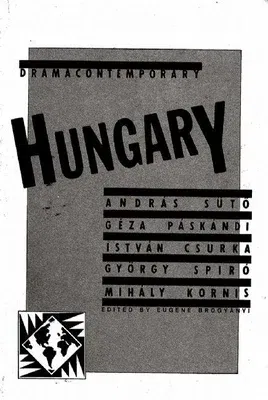Recent political upheavals in Europe have shifted attention to the
Central European cultures slowly transforming themselves from communism
to the democratic process. Hungary is an especially unique case for,
while the country itself was formerly a part of the Austro-Hungarian
empire, the Hungarian language does not belong to any of the major
European language groups. In his Introduction to this volume, editor
Eugene Brogyanyi addresses crucial issues that face languages not widely
known in translation, and the problems of small nations in the
international cultural arena. Though in this century Hungarian
playwrights Ferenc Molnar and Istvan Orkeny have had their plays
produced in professional and university theatres in America, in recent
decades Hungarian plays largely ceased to be translated and performed
here. DramaContemporary: Hungary introduces a newer generation of
writers, Gyorgy Spiro and Mihaly Kornis, in addition to Istvan Csurka,
Geza Paskandi and Andras Suto who have had longer careers in theatre
there. These plays reflect the social realities of Hungarian life,
particularly themes of identity crisis, the role of the intellectual in
society, and for Transylvanian authors Suto and Paskandi, contemporary
political problems transposed into historical, allegorical settings.
English-language audiences, increasingly interested in the drama of
Central European life itself will find important and universal themes at
the heart of these plays which outline the impulses of a society now in
transition.

